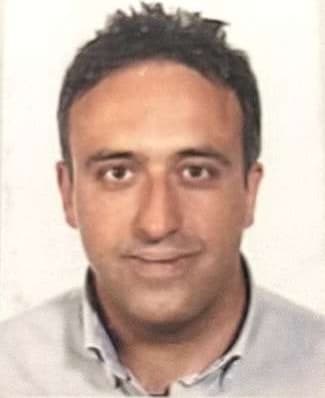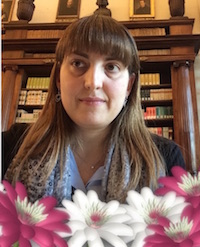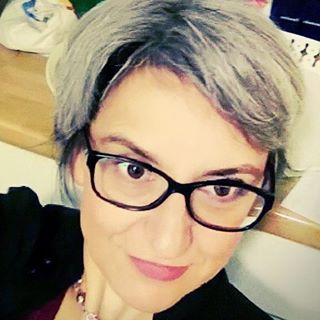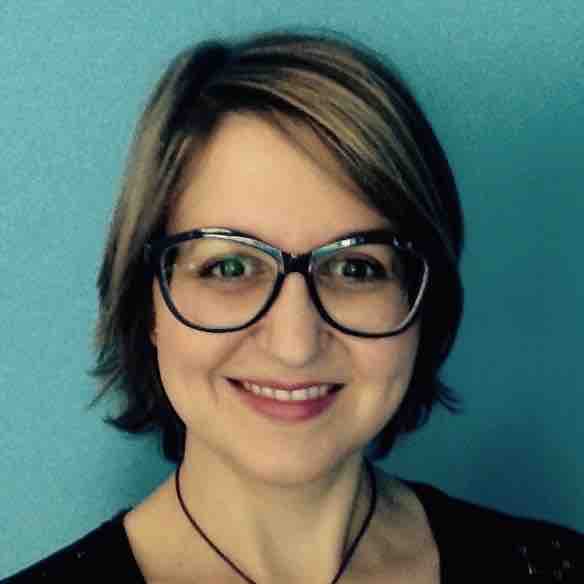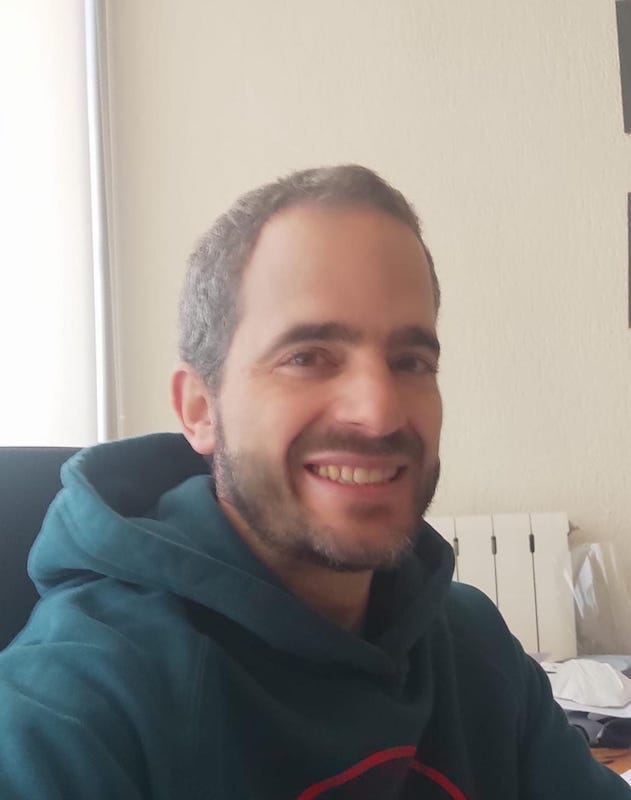Studying at the University of Verona
Here you can find information on the organisational aspects of the Programme, lecture timetables, learning activities and useful contact details for your time at the University, from enrolment to graduation.
Academic calendar
The academic calendar shows the deadlines and scheduled events that are relevant to students, teaching and technical-administrative staff of the University. Public holidays and University closures are also indicated. The academic year normally begins on 1 October each year and ends on 30 September of the following year.
Course calendar
The Academic Calendar sets out the degree programme lecture and exam timetables, as well as the relevant university closure dates..
| Period | From | To |
|---|---|---|
| I semestre (Lingue e letterature straniere) | Sep 28, 2020 | Jan 9, 2021 |
| II semestre (Lingue e letterature straniere) | Feb 15, 2021 | May 29, 2021 |
| Session | From | To |
|---|---|---|
| ESAMI LINGUE - sessione invernale | Jan 11, 2021 | Feb 13, 2021 |
| ESAMI LINGUE - sessione estiva | May 31, 2021 | Jul 24, 2021 |
| ESAMI LINGUE - sessione autunnale | Aug 30, 2021 | Sep 25, 2021 |
| Session | From | To |
|---|---|---|
| LAUREE LINGUE - sessione autunnale (a.a. 2019/20) | Nov 2, 2020 | Nov 7, 2020 |
| LAUREE LINGUE - sessione straordinaria (a.a. 2019/20) | Apr 7, 2021 | Apr 13, 2021 |
| LAUREE LINGUE - sessione estiva (a.a. 2020/21) | Jul 5, 2021 | Jul 10, 2021 |
| Period | From | To |
|---|---|---|
| Festa di Ognissanti | Nov 1, 2020 | Nov 1, 2020 |
| Festa dell'Immacolata | Dec 8, 2020 | Dec 8, 2020 |
| Festa della liberazione | Apr 25, 2021 | Apr 25, 2021 |
| Festa del lavoro | May 1, 2021 | May 1, 2021 |
| Festa del Santo Patrono | May 21, 2021 | May 21, 2021 |
| Festa della Repubblica | Jun 2, 2021 | Jun 2, 2021 |
Exam calendar
Exam dates and rounds are managed by the relevant Foreign Languages and Literatures Teaching and Student Services Unit.
To view all the exam sessions available, please use the Exam dashboard on ESSE3.
If you forgot your login details or have problems logging in, please contact the relevant IT HelpDesk, or check the login details recovery web page.
Academic staff
 silvia.baroni@univr.it
silvia.baroni@univr.it
 stella.merlin@univr.it
stella.merlin@univr.it
 sara.paolini@univr.it
sara.paolini@univr.it

Pisaniello Valerio
 valerio.pisaniello@univr.it
valerio.pisaniello@univr.it
 +39 045802 8381
+39 045802 8381
 massimo.scotti@univr.it
massimo.scotti@univr.it
Study Plan
The Study Plan includes all modules, teaching and learning activities that each student will need to undertake during their time at the University.
Please select your Study Plan based on your enrollment year.
1° Year
| Modules | Credits | TAF | SSD |
|---|
1st foreign language2nd foreign language1st foreign literature2nd foreign literature1 module to be chosen between the following2° Year activated in the A.Y. 2021/2022
| Modules | Credits | TAF | SSD |
|---|
1st foreign language2nd foreign language1st foreign literature2nd foreign literature1 module to be chosen between the following3° Year activated in the A.Y. 2022/2023
| Modules | Credits | TAF | SSD |
|---|
1st foreign language2nd foreign language1st foreign literature2nd foreign literature1 module among the following (philology related to 1st or 2nd foreign language)1 module between the following| Modules | Credits | TAF | SSD |
|---|
1st foreign language2nd foreign language1st foreign literature2nd foreign literature1 module to be chosen between the following| Modules | Credits | TAF | SSD |
|---|
1st foreign language2nd foreign language1st foreign literature2nd foreign literature1 module to be chosen between the following| Modules | Credits | TAF | SSD |
|---|
1st foreign language2nd foreign language1st foreign literature2nd foreign literature1 module among the following (philology related to 1st or 2nd foreign language)1 module between the following| Modules | Credits | TAF | SSD |
|---|
Legend | Type of training activity (TTA)
TAF (Type of Educational Activity) All courses and activities are classified into different types of educational activities, indicated by a letter.
German language 2 (2021/2022)
Teaching code
4S002920
Teacher
Coordinator
Credits
9
Also offered in courses:
- German language 2 of the course Bachelor's degree in Languages and literatures for publishing and digital media
Language
German
Scientific Disciplinary Sector (SSD)
L-LIN/14 - LANGUAGE AND TRANSLATION - GERMAN
Period
II semestre (Lingue e letterature straniere) dal Feb 14, 2022 al May 28, 2022.
Learning outcomes
The main aim of this course is to introduce students to the analysis of the German morphological system. On successful completion of this course, students will be able to:
- describe the basic categories of German morphology;
- characterize and explain the main morphological processes of German;
- describe the most important differences between the main morphological processes of German and Italian;
- apply the acquired knowledge to specific examples of the standard language;
- provide evidence that they have acquired advanced language skills corresponding to the fourth level (B2) of the Common European Framework of Reference for Languages (CEFR).
Program
"Introduction to German morphology"
This course, which does not have as a prerequisite any specific background in linguistics, introduces students to the study of German morphology with emphasis on description and analysis. Students will become familiar with central concepts such as ‘Morphem’, ‘Morph’, ‘Allomorph’, ‘Fugenelement’, ‘Ablaut’, ‘Umlaut’, ‘Wortbildungsprozess’, ‘Produktivität’, etc. Word structure and word structure rules will be described and scientific analysis techniques will be practiced. In particular, German-Italian similarities and contrasts in word formation processes will be highlighted.
This course is taught in German. Students not attending the course should contact the Professor in order to get a detailed explanation of their program.
Teaching method: frontal teaching.
Bibliographic references
Alber, Birgit (2015). Einführung in die Morphologie des Deutschen. Verona: QuiEdit. Required both for students attending or not attending the course.
Cantarini, Sibilla (2018). Bildung und Verwendung von Neologismen in der deutschen Wirtschaftssprache der Gegenwart. Milano: EDUCatt. Students not attending the course have to read introductory parts of the book.
Additional material is available on the e-learning platform of the course.
The following books are for those students who have difficulties in reading the German texts:
Graffi, Giorgio e Sergio Scalise (2013). Le lingue e il linguaggio. Introduzione alla linguistica, Bologna, Il Mulino.
Sergio Scalise (1994). Morfologia. Bologna, Il Mulino.
Bibliography
Examination Methods
Exams are only written and in German. During the examination students should answer two questions and solve some exercises. Students not attending the course should contact the Professor in a timely manner, in order to get a detailed explanation of their program and written exam. The written exam will be similar to the one of the students attending the course. Linguistic competence required: level B2 (CEFR), certified either by the Centro Linguistico di Ateneo (CLA) or by any other authorized testing centre. Students taking this exam must have completed the language and literature exams of the first and second year. The final grade is the mean of the grade of this theoretic module and of the grade of the language certificate (B2).
Type D and Type F activities
To discover all the teaching activities accredited by the foreign teaching college click here
Career prospects
Module/Programme news
News for students
There you will find information, resources and services useful during your time at the University (Student’s exam record, your study plan on ESSE3, Distance Learning courses, university email account, office forms, administrative procedures, etc.). You can log into MyUnivr with your GIA login details: only in this way will you be able to receive notification of all the notices from your teachers and your secretariat via email and also via the Univr app.
Gestione carriere
Attendance and location
Attendance is not mandatory.
More detailed information on attendance requirements, please refer to the “Regolamento del corso di studio”, available under the “Regolamenti” section in “Il Corso”. While the Student Handbook does not require mandatory attendance, it is recommended to confirm specific attendance policies with your professors for each course, lab, or practical training.
Part time enrolment is an option. For more information, visit the Possibilità di iscrizione Part time.
Classrooms and exam locations are:
Classes and exams are held at the following locations:
- Polo Zanotto (close to the Foreign Languages and Literatures building)>
- Polo Santa Marta
Student login and resources
Assegnazione tutore
Attività accreditate D/F
Calendario didattico dettagliato
Cambio lingua curriculare
Competenze informatiche
Competenze linguistiche (prima e seconda lingua)
Competenze linguistiche in triennale (terza lingua CFU F)
Compilazione del piano didattico
Corso di Lingua catalana a.a. 2024-25
Corso di Lingua portoghese
Erasmus+ e altre esperienze all'estero
Linguistic training CLA
Presentazione dei corsi di studio e Open day
Graduation
Saperi minimi
Stage e tirocini
Le attività di stage sono finalizzate a far acquisire allo studente una conoscenza diretta in settori di particolare interesse per l’inserimento nel mondo del lavoro e per l’acquisizione di abilità professionali specifiche.
Le attività di stage sono svolte sotto la diretta responsabilità di un singolo docente presso studi professionali, enti della pubblica amministrazione, aziende accreditate dall’Ateneo veronese.
I crediti maturati in seguito ad attività di stage saranno attribuiti secondo quanto disposto nel dettaglio dal “Regolamento d’Ateneo per il riconoscimento dei crediti maturati negli stage universitari” vigente.
- Tutte le informazioni in merito agli stage per futuri studenti sono disponibili alla pagina Stage e tirocini.
- Tutte le informazioni in merito agli stage per studenti iscritti sono pubblicate in MyUnivr - come fare per - stage e tirocini.
- Tutte le informazioni in merito agli stage per le aziende sono disponili alla pagina Stage e tirocini per azienze.
Ulteriori informazioni al seguente link https://www.univr.it/it/i-nostri-servizi/gestione-carriere-studenti-lingue-e-letterature-straniere/stage-e-tirocini-lingue-e-letterature-straniere







